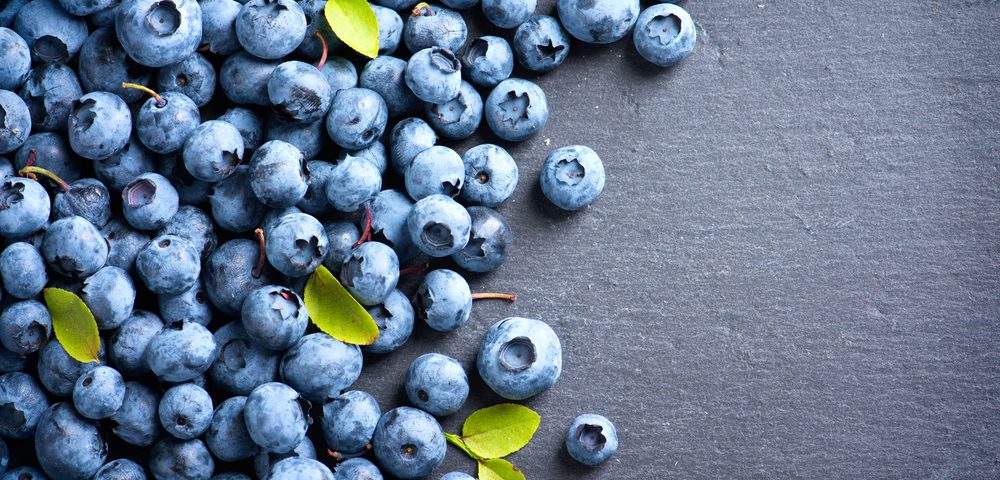Pterostilbene (PSB), a compound found in blueberries, can reduce the inflammatory activity of immune cells and limit colon inflammation in mice, a new study shows.
The findings suggest that PSB may have potential as a treatment for inflammatory bowel disease (IBD).
The study, “Pterostilbene reduces colonic inflammation by suppressing dendritic cell activation and promoting regulatory T cell development,” was published in The FASEB Journal.
IBD is caused by increased inflammation in the colon; as such, treatments for IBD are generally aimed at reducing inflammation.
Many plants produce bioactive compounds, which are molecules that can affect processes in the human body, such as inflammation. One such compound that is fairly well-characterized is resveratrol (RSV), a polyphenol and antioxidant found in several plants, including grapes, that has been shown to have anti-inflammatory properties — including decreasing inflammation in mouse models of IBD.
PSB is the main antioxidant found in blueberries, and its structure is quite similar to that of RSV — though notably, certain structural differences between the molecules make PSB more easily absorbed by the body than RSV.
In a recent study, researchers at Tokyo University of Science examined whether PSB might have similar anti-inflammatory effects with relevance to IBD.
“RSV, a polyphenol, was known to have pronounced immunomodulatory and anti-inflammatory effects on animal models of colitis ulcer. Therefore, we investigated the possibility of other compounds structurally similar to RSV as a new type of treatment for IBD,” Takuya Yashiro, PhD, the study’s lead author, said in a press release.
The researchers first examined in vitro the effects of PSB treatment on two types of mouse immune cells: T-cells and dendritic cells. Both of these immune cells are involved in IBD.
When T-cells are exposed to certain inflammation-provoking stimuli, they proliferate, rapidly dividing to produce many new T-cells, which go on to drive inflammation. PSB treatment reduced T-cell proliferation in response to inflammatory stimuli.
There are multiple different subsets of T-cells, and the researchers found that PSB treatment also altered the proportions of these subsets. Specifically, PSB treatment reduced the proportion of Th1 and Th17 cells, which typically are pro-inflammatory, whereas it increased the proportion of regulatory T cells (Tregs), which usually are anti-inflammatory.
“These results indicate that PSB exhibits immunosuppressive activity by promoting T cell differentiation toward Treg cells rather than toward Th1 and Th17 cells,” the researchers wrote.
Dendritic cells are responsible for producing many signaling molecules that help to coordinate the immune system. Treating these cells with PSB reduced the production of multiple pro-inflammatory signaling molecules.
Collectively, the findings suggested that PSB reduces the inflammatory activity of immune cells that are involved in the progression of IBD.
To examine this effect in living animals, the researchers used a mouse model of IBD, wherein colon inflammation is induced by adding a chemical called dextran sodium sulfate (DSS) in the mice’s drinking water.
Three days prior to starting on DSS, some mice were started on treatment with 100 mg/kg PSB, given orally once per day. Other mice, serving as controls, were given an inactive vehicle instead.
PSB treatment significantly reduced weight loss and disease activity in this mouse model. Additionally, PSB treatment significantly reduced the expression of tumor necrosis factor alpha, a pro-inflammatory signaling molecule implicated in IBD, in the mice’s colon.
Taken together, these data show that PSB can reduce the inflammatory processes that drive IBD, suggesting that “PSB supplementation may either inhibit the pathology of IBD or delay its onset,” the researchers wrote.
“For disease prevention, it is important to identify the beneficial components in foods and to understand the underlying mechanism by which immune responses and homeostasis [internal balance] are modulated in body. Our findings showed that PSB possesses a strong immunosuppressive property, paving the way for a new, natural treatment for IBD,” Yashiro said.
The next step could be to confirm these findings in humans.
“Whether PSB executes similar immunosuppressive effects in human immune cells requires further analysis,” the researchers wrote.

